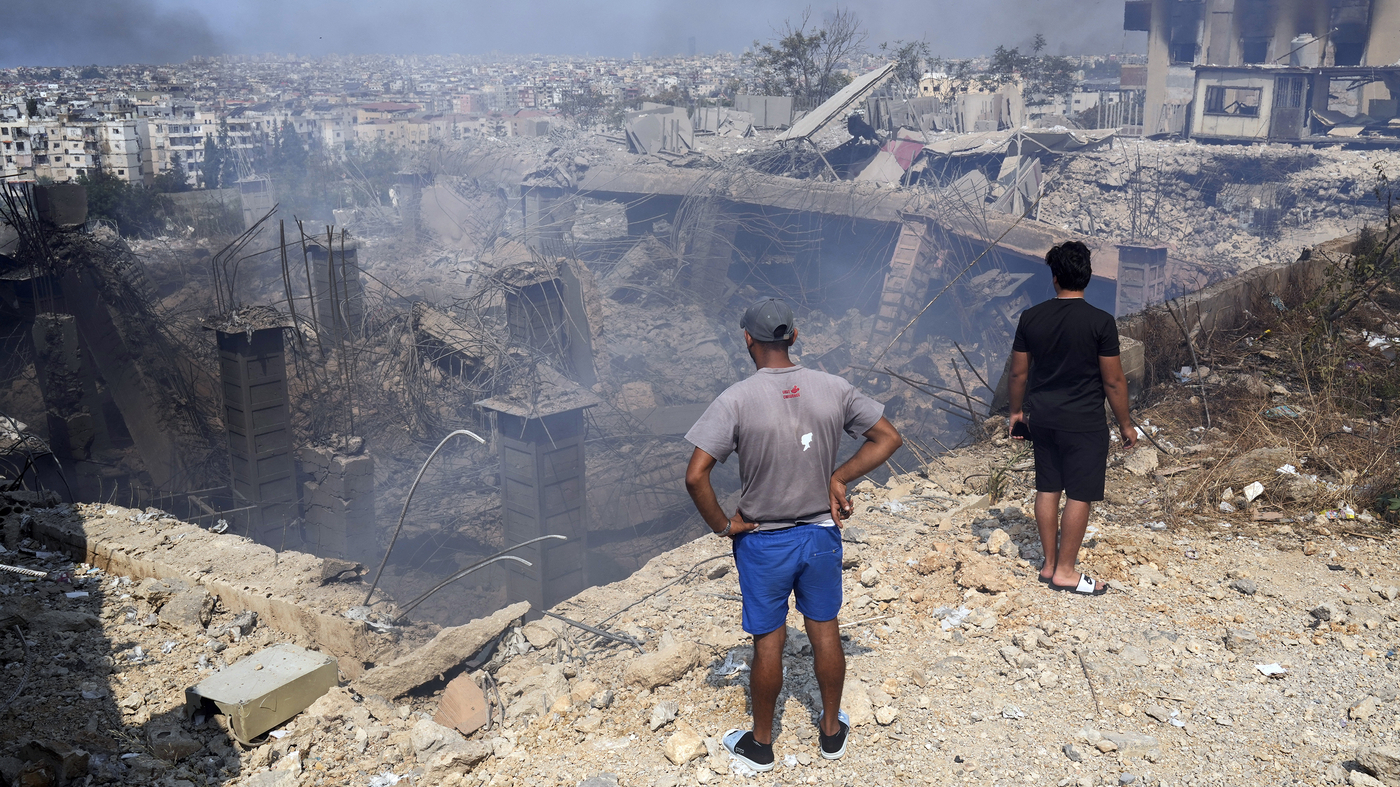People check a damaged building at the site of an Israeli airstrike in Choueifat, south east of Beirut, on September 28.
Hussein Malla/AP
hide caption
toggle caption
Hussein Malla/AP

People check a damaged building at the site of an Israeli airstrike in Choueifat, south east of Beirut, on September 28.
Hussein Malla/AP
Israel began a series of attacks against the Lebanese militant group Hezbollah with pagers and walkie talkies that exploded. They then launched airstrikes targeting the group’s leadership. One strike killed Hezbollah’s leader of over thirty years, Hassan Nasrallah. The attacks are an effort to prevent Hezbollah from continuing to fire rockets at northern Israel, which it has been doing since the war in Gaza began. Israel’s airstrikes are continuing to widen and their military is massing at the border, pointing to a possible ground invasion.
We’ll hear from our correspondent in Beirut about the feeling on the ground there. We also hear about whether and how Iran might respond. Iran had been arming Hezbollah to counter Israel, and the weakening of the group is a blow to an important proxy of Iran’s.
For more coverage of all sides of this conflict, go to npr.org/mideastupdates
